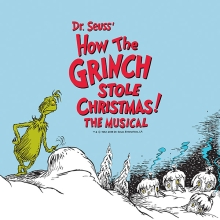Show History
History
Inspiration
In 1947, Jerome Robbins approached Leonard Bernstein and Arthur Laurents about collaborating on a contemporary musical adaptation of Romeo and Juliet. He proposed that the plot focus on the conflict between an Irish Catholic family and a Jewish family, each living on the Lower East Side of Manhattan, during the Easter/Passover season. They would call it East Side Story. Only after Laurents completed a first draft did the group realize that it was little more than a musicalization of themes that had already been covered in plays like Abie's Irish Rose.
Bernstein suggested that they rework East Side Story and set it in Los Angeles, but Laurents felt that he was more familiar with Puerto Ricans and Harlem than he was with Mexican Americans and Olvera Street. The New York newspapers were filled with articles about gang warfare, keeping the show's plot timely. The title was changed to West Side Story to represent the new subject matter's neighborhood and, when Bernstein decided that he needed to focus solely on the score, Stephen Sondheim, a relative newcomer, was brought in to write lyrics. Thus, the team – and eventually the musical, West Side Story, as we know it – was born.
Productions
After tryouts in Washington, D.C., and Philadelphia beginning in August 1957, the original Broadway production of West Side Story, a musical adaptation of William Shakespeare's Romeo and Juliet, opened at the Winter Garden Theatre on September 26, 1957, to positive reviews. Directed and choreographed by Jerome Robbins, with a book by Arthur Laurents, music by Leonard Bernstein and lyrics by Stephen Sondheim, the new musical starred Larry Kert as Tony, Carol Lawrence as Maria and Chita Rivera as Anita. The production ran for 732 performances at the Winter Garden Theatre before closing on June 27, 1959, touring the U.S. for ten weeks and then returning to the Winter Garden Theatre from April 27, 1960, through December 10, 1960, for another 253 performances.
It had its European premiere at the Manchester Opera House in November of 1957 before transferring a month later to London, where it opened at Her Majesty's Theatre in the West End on December 12, 1957, and ran until June 1961 with a total of 1,039 performances. Robbins directed and choreographed, with co-choreography by Peter Gennaro. In February 1962, the West End production launched a five-month Scandinavian tour, opening in Copenhagen, continuing to Oslo, Goteborg, Stockholm and Helsinki.
A Broadway revival opened at the Minskoff Theatre on February 14, 1980, and closed on November 30, 1980, after 333 performances. It was again directed and choreographed by Robbins, with the assistance of Tom Abbott and Lee Becker Theodore. It starred Ken Marshall as Tony, Josie de Guzman as Maria and Debbie Allen as Anita.
A new production, slightly retooled by Laurents for modern relevancy, with some of the lyrics translated into Spanish, ran at the National Theatre in Washington, D.C., from December 15, 2008, through January 17, 2009, as an out-of-town tryout for a Broadway bound revival.
Laurents' new West Side Story then began Broadway previews on February 23, 2009, and opened at the Palace Theatre on March 19, 2009. The cast featured Matt Cavenaugh as Tony, Josefina Scaglione as Maria and Karen Olivo as Anita. The production closed on January 2, 2011, after 748 performances and 27 previews, and was again succeeded by a successful national tour.
In addition to those national tours directly following these high-profile productions, national tours of West Side Story were also produced in 1987, 1998 and 2002.
Cultural Influence
- In addition to inspiring and providing the basis for the wildly popular, ten-time Academy Award-winning, 1961 movie-musical of the same name, West Side Story has been revived twice on Broadway.
- There have been five West Side Story cast albums released, including: the 1957 Original Broadway Cast, the 1961 Movie Cast, the 1985 Studio Cast, the 1997 Studio Cast and the 2009 New Broadway Cast.
- Countless artists have sung, played and been inspired by West Side Story's music, and references to it in popular TV shows, movie and books are too great to measure.
Trivia
- Aside from the awards that it has won over the years, West Side Story has been nominated for an additional ten Tony Awards, including Best Musical or Best Revival of a Musical three times, two Drama Desk Awards and two Olivier Awards.
- While writing the score, composer, Leonard Bernstein, was concurrently writing Candide. Several songs that had been intended for one show were reworked and ended up in the other, such as "One Hand, One Heart."
- West Side Story also marked the Broadway debut of Stephen Sondheim, who, at only 27 year of age, penned its now-classic lyrics and went on to change musical theatre.
- Arthur Laurents originally wanted James Dean to play Tony, but Dean was killed suddenly in a 1955 car crash, before West Side Story was completed.
- In 2007, Arthur Laurents expressed disappointment in the 1980 revival, stating, "The musical theatre and cultural conventions of 1957 made it next to impossible for the characters to have authenticity. Every member of both gangs was always a potential killer, even then. Now they actually will be. Only Tony and Maria try to live in a different world." He envisioned a more authentic production that would weave Spanish lyrics and dialogue into the English libretto. Translations were done by Lin-Manuel Miranda. After mixed reviews from critics and audiences alike, the Spanish lyrics for "A Boy Like That" ("Un Hombre Asi") and "I Feel Pretty" ("Me Siento Hermosa") were returned to their English versions.




